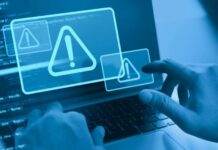
Couch warriors posting anonymously on social media accounts may find themselves gagged in California, where legislators unanimously voted to require them to “prove” their identity. The new laws would force social media platforms to verify anonymous users through several measures, including a government-issued ID.
According to SB 1228, proposed by State Sen. Steve Padilla (D-CA0, social media platforms would need to attempt to confirm the personal details of “influential” users. This could involve requesting government-issued identification from “highly influential users.” Users considered influential and who fail to comply will have a brief notification displayed on their content indicating their unverified status. This notification would remain visible for two seconds before the rest of the post is displayed, after which the unverified status would still be indicated.
Naturally, this is another attempt to curb “misinformation.” Padilla claims that the “average” person has no way of knowing the difference between a “reputable” news source and what he calls “AI-generated misinformation.” He also points out that anonymous users are emboldened to post “misinformation” because they cannot be held accountable for their posts.
Users categorized as “influential” must provide their name, phone number, and email address if they have either 15,000 or more followers, surpass 50,000 views within a week, or rank within the top 6% of platform views within a week. On the other hand, “highly influential” users would need to furnish government-issued identification if they have 30,000 or more followers, exceed 100,000 views within a week, or rank within the top 3% of views within a week.
Mariko Yoshihara from the California Initiative for Technology & Democracy explained that the bill does not force platforms to make users verify their identity or prevent them from using pseudonyms or staying anonymous online. It aims to have platforms try to confirm the identity of users once they’ve reached a certain level of “influence.”
Opponents of the bill raised concerns about the importance of anonymous speech in American history. They also pointed out the potential confusion regarding what it means to “seek to verify” influential users. They highlighted the risk that companies failing to meet this requirement could face lawsuits from state or local government attorneys seeking legal action, such as injunctions or other remedies.
Khara Boender from the Computer & Communications Industry Association told the committee that it’s not clear what exactly meets the bill’s criteria for attempting to verify influential users. Boender argues that anonymous users might “discuss sensitive issues, express dissenting views in oppressive regimes, or belong to marginalized communities,” among other reasons.
Anonymous speech has long been valuable in the United States, dating back to the Federalist Papers. The Federalist Papers are a collection of 85 essays by Alexander Hamilton, James Madison, and John Jay, published between 1787 and 1788 to promote the ratification of the Constitution. These authors adopted the collective pseudonym “Publius” to present their arguments independently of their identities, allowing their ideas to speak for themselves.
Today, the Federalist Papers continue to serve as a valuable resource for understanding the intentions of the Founding Fathers and the foundational principles of the U.S. Constitution.
But the battle to control the narrative rages on throughout liberal camps. Nina Jankowicz, who previously directed the now-defunct Disinformation Governance Board, has launched a new organization called The American Sunlight Project, which she describes as “bipartisan” and “inclusive” in representing “diverse political viewpoints.”
However, despite this claim of impartiality, the organization’s recent actions suggest otherwise.
The American Sunlight Project has disregarded concerns raised by investigations such as The Twitter Files and The Facebook Files, which exposed pressure from government agencies and non-profit organizations on tech platforms to censor content. The group sent a letter to the House Select Subcommittee on the Weaponization of the Federal Government, criticizing inquiries into potential collusion between Big Tech and the government and advocating for greater transparency.
Although Jankowicz emphasizes bipartisanship and openness, she has chosen to keep the identities of her donors undisclosed. Her previous support for Twitter’s fact-checking initiatives and content demotion has faced criticism, but she is encouraged to exercise blatant censorship.
As the election nears, expect liberals to increase censorship on all news and social media platforms. The Biden campaign will never survive anything less than a complete dictator-styled censorship campaign.














